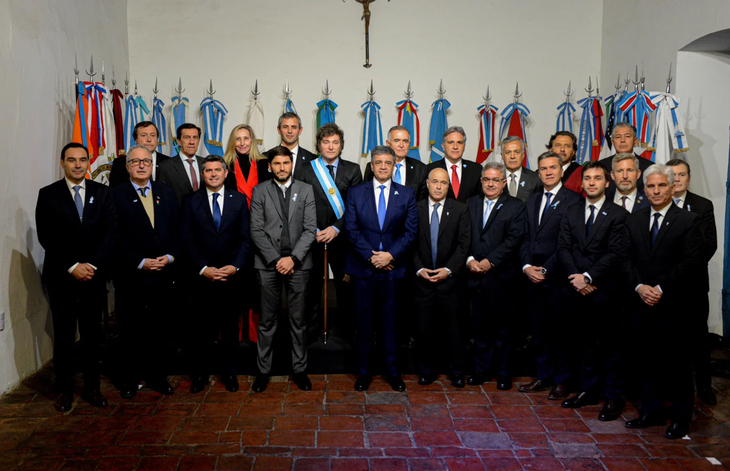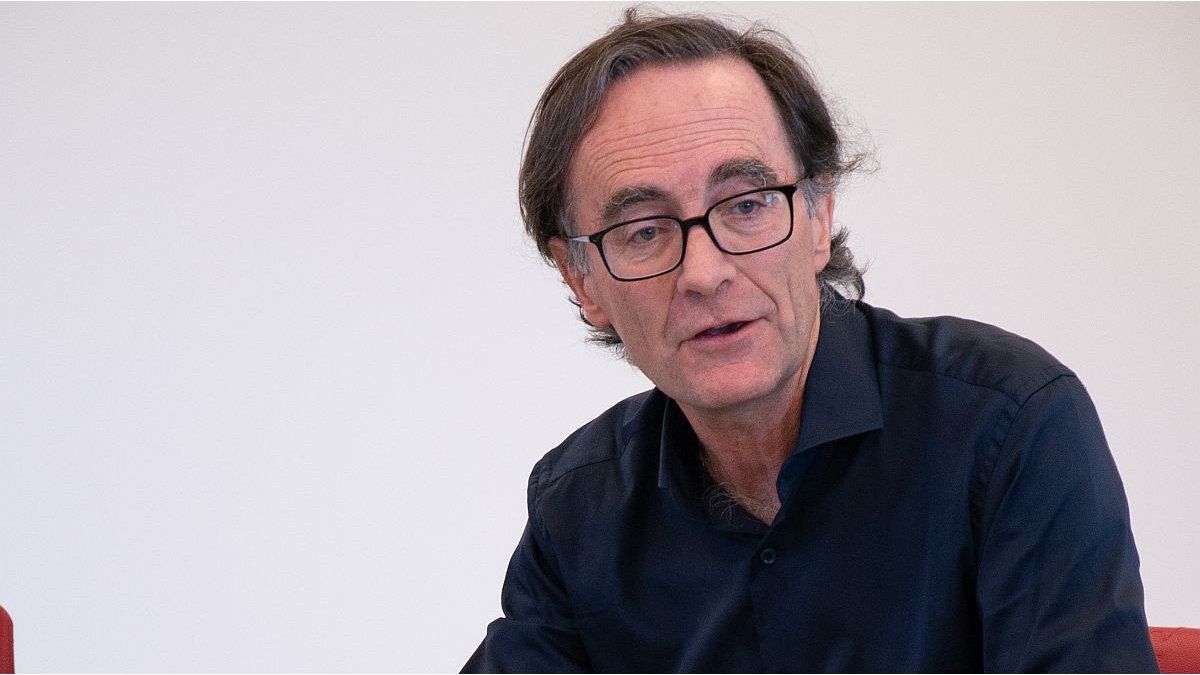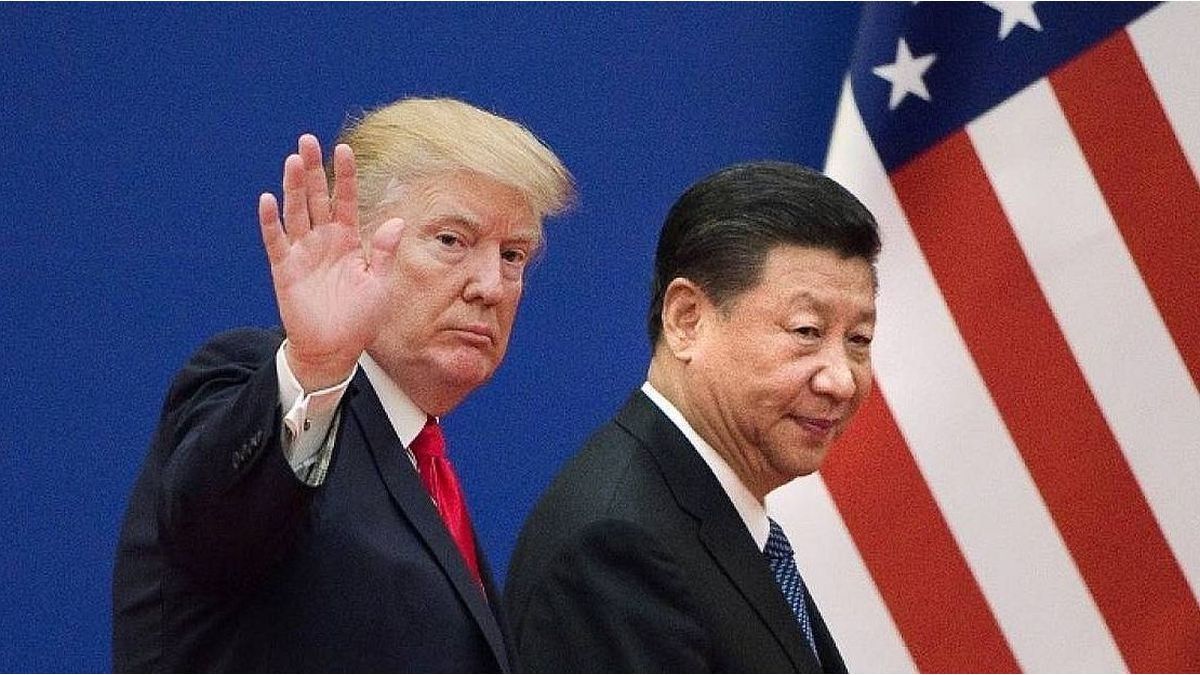In dialogue with Scope, The economist Osvaldo Giordano, Who is currently president of the Ieral of the Mediterranean Foundation after a few months at the head of the ANSES in the first months of Javier Milei management, warned that The recent rise in interest rates decided by the government to contain the dollar will bring negative consequences in economic activity and the fiscal front, which can deepen the recession and complicate fiscal accounts.
He analyzed the economic situation and also raised the need for political consensus to advance tax and pension reforms. Likewise, the former Minister of Finance of Córdoba questioned the co -participation regime and requested agreements with the provinces to carry out structural reforms.
Journalists: How do you analyze the current situation of the economy, after the events of recent weeks?
Osvaldo Giordano: The definition is that it is becoming very uphill to the elections. The increase in country risk has enormous meaning. There are difficulties of the precarious situation in which Argentina has long been, but others of new events such as what happened with Andis or errors made since the disarmament of the Lefi, which added pressure to a complicated and pre -election context. We see it with concern. This is reflected in the attitude of the Ministry of Economy to raise rates to extreme levels. This will have a consequence at the level of activity and complicate one of the pillars of the economic program, the prosecutor, because the State pays interest and that is enlarged. The recession and incentives that this generates in evasion and default in the payment of safe taxes affects the income of the State.
Q: He mentioned the disarmament of the Lefi, was it the beginning? What do you think it failed?
OG: There was an error. I do not know why. It is a team that had shown solvency in financial management. Maybe there was an excess of confidence or improvisation that was paid. An excess of money that pressed the dollar, with irrigation of impact on inflation, the main indicator that the government takes care of for political and electoral effects. It generated an adverse chain. The only way they find to reverse it is to press the interest rate, recognized as something negative but transitory. It has effects on activity and on the State, but it will have to be resolved as soon as possible.
2024-10-30 FM Anniversary-PH ATEZZO PRODUCORA-32
Q: Can the government hold this exchange rate?
OG: The government will use all the instruments you have to sustain the exchange regime. Any modification could have an effect on inflation, with a political connotation that the government will not risk. There will be no relaxation in the decrease in inflation, but that means sacrificing other objectives: employment and economic activity, which are going to be resent. And there is still much for October, then many things can be rethink, including the exchange rate regime, but above all that the Government shows that it is able to improve political management. That there is less aggressiveness to be able to advance with the changes and reforms that Argentina needs. The ruling will remain a minority and has no allied governors, so it has to be able to seduce part of the opposition in favor of an agenda of reforms. Not only depends on the result of the choice, but how they are processed.
Q: Do you see possible a reactivation of the economy?
OG: In the exchange, there is something implicit in the April ads: continue advancing to a bimonary regime. That implies that what remained of the stocks is lifted, and that there is more freedom to move with both coins. The band scheme would lose meaning. That is, you can pass after October to a freer scheme. I don’t see it so complicated or so risky. The most important thing to get out of lethargy, since production has been stagnant since February, is that the government is able to seduce the opposition in favor of an agenda of reforms. There may be confidence to refinance the debt, lower the rate, reduce country risk. Investment projects are not viable with these rates.
Q: As former Minister of Finance of Córdoba, how do you see the pulls between Nation and the provinces?
OG: This is part of the structural reforms to be addressed. Among the ten points of the May pact, one is the co -participation regime and another the tax reform. They are two things that yes or do need agreement between Nation and the provinces, at least the majority. Without that agreement there is no possibility to do so. The nation cannot be done or the provinces alone. A simpler tax scheme is needed, which complicates the life to which he wants to produce, that does not punish exports. Something more rational, similar to countries that work well. The bad taxes are both sides. On the national side, the check tax or export rights. And on the provincial side, perhaps the worst taxes as gross income. Even the municipal rates that are negative. After the elections you have to find a way to agree.
Q: What do you think of the projects of the governors to distribute ATN and fuel taxes?
OG: ATNs are a proof of how perverse the co -participation system is. It is a dough point and is distributed discretionally by the national government, many times to contain political favors. The remaining 99% also works very badly and you have to change it. The governors’ project is somewhat less, but that is commonly: that is distributed with some criterion of objectivity. The law is less against the problem, the relevant thing would be that it was complied with what was signed in the May Pact, to advance to a different system, how resources and tax power are distributed. Something that works better.
PACT1.JPG

The May Pact was signed on July 9 in Tucumán.
Q: And the pension system? What do you think of a possible reform?
OG: In the ordering of the pension system, the provinces are also key. It is not just national. For most provinces, it is also the main public finance distortion factor. There would also be an agreement with the provinces in pursuit of a reform. I do not think it is necessary to wait for labor reform. They are necessary, autonomous reforms. Demography plays against and problems continue to accumulate. Not only because of the problems of retirees but because a mortgage is being generated in the future. It is a system that we know we must modify.
Q: The box not transferred to Nation was a headache in its management in Córdoba …
OG: I can tell a lot about it, because it is a problem with which I dealt with years. It is the main problem of the finance of the provinces, not just Córdoba. Santa Fe passes to something worse, and did a reform recently. It happens to Entre Ríos, to Buenos Aires, to the Patagonian provinces. It is an opportunity. Instead of confronting, there is a challenge and a demand to work together, looking for a more equitable pension system, that is a simultaneous solution for nation and for the provinces. It would be very prudent to be a work priority.
Q: How was your relationship with Javier and Karina Milei in her brief passage through national management?
OG: With neither I had a relationship. I never saw Karina personally. To Milei, only in a meeting that we had had a long time before, on the occasion of the book we had written with Jorge Colina. Guillermo Francos introduced me to Sandra Pettovello, with whom I interacted the days I was in the management. I have a good relationship, some things were done, it could not be continued. There were the conditions to do valuable things.
Source: Ambito




